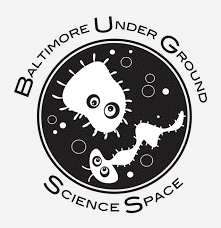
Baltimore Underground Science Space (BUGSS)
Paid: Positions are unpaid.
Positions: Multiple
Minimum Degree Requirements: Fellows should have received or be pursuing a PhD, MD, or equivalent degree.
Commitment Period: Expect to devote 1-3 hours of course preparation for every 1 hour of course time.
Topics: Biotechnology, Molecular Biology, Microbiology, Synthetic Biology, Genetics, Neuroscience, Science Outreach
- Click to expand -
Baltimore Underground Science Space (BUGSS)
@bugslab (Twitter/Facebook/Instagram)
101 N. Haven Street, Suite 105
Baltimore, MD, 21224
http://www.bugssonline.org/
CTF Contact/Mentor
Lisa Z. Scheifele, PhD, Excectuive Director
[email protected]
@Bugsslab (twitter / facebook / Instagram)
BUGSS Information Session Recorded Presentation
Positions Available (Fall 2024):
Degree Requirements: Fellows should have received or be pursuing a PhD, MD, or equivalent degree.
Preferred Skills and Experience: Interest in teaching to a broad and diverse audience.
Commitment Length: Flexible, from one-time lectures to long-term course and project support.
Payment: Positions are unpaid.
Expected Weekly Commitment: Expect to devote 1-3 hours of course preparation for every 1 hour of course time.
Fellowship Details/Expectations:
We will work with fellows to create an outreach or teaching opportunity that is mutually beneficial. These can range in length from 2 hours to multi-session courses of a few hours each. Courses are typically drawn from the fields of Biotechnology, Molecular Biology, Microbiology, Synthetic Biology, Genetics, Neuroscience, Science Communication.
- Fellows have the option to teach a course that has been previously developed. PowerPoint slides and protocols will be provided to the fellows as they are available.
- Fellows have the option to develop and pilot a course centered around your own research specialty. We encourage these to be hands on, but our lab operates at Biosafety Level 1. For those developing their own courses, help is available to develop teaching materials and ensure that they are at the appropriate level for the target audience.
Evaluation: Informal review and feedback from mentor. Formal written review at the end of the course if requested by fellow.
Parking and Transportation: Public transportation is available. Off-street parking in a gated lot is available.
Classes take place after work hours so PI sign-off is not required for participation.
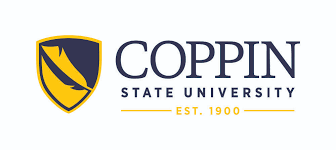
Coppin State University
Paid: Yes
Positions: 2 positions available; all are in-person (face-to-face) courses.
Minimum Degree Requirements: Must have a Ph.D. or Master's degree; depending on the position - see below for details.
Commitment Period: Fall 2024 semester
Topics: General Biology
- Click to expand -
CTFP Contact:
Dr. Kavita Hegde, Professor
Biology Program Coordinator
Department of Natural Sciences
Coppin State University
2500 West North Avenue, Baltimore, MD 21216
Phone: 410-951-4137; Email: [email protected]
2 positions available; in-person (face-to-face) courses, adjunct instructor positions (paid):
- BIOL 101 (General Biology, undergraduate level): two positions
Location:
Coppin State University
2500 West North Avenue,
Science & Technology Center
Department of Natural Sciences, Suite 200
Baltimore, MD 21216
Position Details/Expectations:
The adjunct instructor will be expected to conduct classes at the scheduled times, conduct and grade tests/exams, manage the learning management system (Blackboard) in terms of communicating with students, posting assignments, grade exams, post grades, etc. The instructor will receive relevant training and support for Blackboard from IT as well as course support from the program coordinator to facilitate course/class management.
Evaluation
Ongoing in‐person feedback from course coordinator will be provided. Formal written feedback at the end of semester can be provided on request. Fellows who wish to continue to teach in the subsequent semesters can let the program coordinator know of their interest; the decision to continue will be subject to approval by the department Chair.
Parking and Transportation: Parking is available on campus for a fee/month or semester.
Description and requirements of the listed adjunct instructor positions
1. Adjunct instructor for BIOL 101 General Biology (4 credits, undergraduate level): This is a general biology course for non-science majors.
Degree Requirements: Must have at least M.S. in any biology area
Preferred skills and experience: Teaching experience preferred, but not mandatory.
Position: Paid
Commitment Length: Fall 2024 semester: Aug 21st-Dec 22nd 2024
Expected Weekly Class Time Commitment on Campus:
6 hours/week (3 hours lecture and 3 hour lab)
Class schedule:
First position: twice a week-Monday (lecture) & Wednesday (lab): 5:20PM-8:10PM
Second position M/W/F lecture 2:00-2:50PM; lab Tuesday 11:00AM-1:50PM
Expected Weekly Commitment outside of Class Time: All materials and access to resources will be provided. Preparation time: ~1 hour/week.
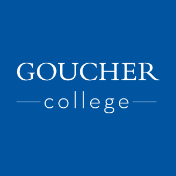
Goucher College
Paid: Paid and unpaid, depending on position.
Positions: Multiple
Minimum Degree Requirements: Must be PhD candidate (or MPH candidate for public health courses) or Post-doctoral Fellow
Commitment Period: 1 or 2 semesters
Topics: Multiple
- Click to expand -
Goucher College
1021 Dulaney Valley Road
Baltimore, MD, 21204
goucher.edu
CTF Contact/Mentor
Jamie Batts- Educational Developer – Center for Advancement of Scholarship at Teaching at Goucher College
[email protected]
Goucher Information Session Recorded Presentation
Goucher Information Session Presentation (PDF)
Multiple Positions Available: One Fellow per course
Goucher College offers CTFP opportunities across a variety of courses in the sciences and beyond. Graduate students and postdoctoral applicants are welcomed. In their CTFP application, candidates should mention specific courses of interest to them. Commitment is for one semester.
The courses listed below are ones whose instructors have expressed interest in working with a teaching fellow. It is possible that additional instructors would be open to the idea if they knew a candidate was interested in their course. For a full listing of courses, see http://catalog.goucher.edu/.
The type of participation and time commitment by the teaching fellow are negotiable between the fellow and the instructor.
FA24 semester (8/22/24 – 12/06/24):
CENTER FOR NATURAL, COMPUTER & DATA SCIENCES:
*DMC 106 Introduction to Statistical Methods (Instructor: Tom Narock )
This course provides an introduction to basic statistical principles, including basic probability, the normal and binomial distributions, hypothesis testing, and confidence intervals. This will culminate with the introduction of correlation and linear and logistic regression. The class focuses on conceptual learning and hands-on problem solving as well as computational tools for the statistical analysis of large data sets.
*DMC 102 Data Analytics for Sustainability (Instructor: Tom Narock)
Trillions of terabytes of data are generated and recorded daily by just using a smartphone, driving a car, or using a credit card. The same is true when goods are shipped across the world, grass is watered in a desert, corporate buildings are lit 24 hours a day, or the Chesapeake Bay is tested for various water pollutants. In this course, we will examine this data and how it shapes our environment. Students will collect, represent, analyze and interpret data from a variety of sources as means to analyze environmental sustainability issues and the debates centered on them. An assortment of software tools will be used to process this data.
*BIO 497 (Capstone in Biological Sciences) (instructor: Judy Levine)
The Biological Sciences and BCMB curricula expose students to a variety of scientific fields and important avenues of research. In their capstone experience, students will examine current literature and research to develop advanced written work that addresses a significant question in modern biology. Working with faculty, students will identify their own topic of interest, research the state of the field, and consider ways to address gaps in knowledge in the field. Career exploration and preparation will occur throughout the capstone.
CHE 341 (Biochemistry) (instructor: Judy Levine)
Structure and function of biological molecules, chemistry of enzyme-catalyzed reactions, intermediary metabolism. Three hours lecture (no lab component to this course, but a separate biochemistry lab course with this course as a pre-req runs in the spring). Prerequisites: CHE 235 (organic chemistry II) and one college-level general biology course, or permission of the instructor.
PSY233- Sensation and Perception (instructor: Ghirardelli)
This course is a survey of current theory and research in perception. The primary goal is for students to gain an understanding of how people obtain reliable and useful information about the environment around them through their senses. Exploring several perceptual systems, including vision, audition, touch and pain, and smell and taste, we will cover topics such as the physiological structure of sensory systems, psychophysics, attention, sensory integration, and comparative perception. Prerequisite: PSY 105. Fall semester.
CENTER FOR HUMANITIES & INTERDISCIPLINARY STUDIES:
LAM 105 (Intro to Latin American Studies) (instructor: Citlali Miranda-Aldaco)
This course will introduce students to many cultural, social, and political aspects of the region of the world known as Latin America. Beginning with the various views of what is meant by “Latin American,” the course will give students a more complete picture of the heterogeneous identities of the area. Taking an interdisciplinary, broad approach to regional studies, the course will explore the diverse artistic movements, social organizations, and political institutions that have shaped Latin America in the past and continue to define its present.
WRT181 (Writing Studies)( Instructor: Katherine Cottle)
This course welcomes you into the Goucher Community of Writers and to the creative processes of inquiry, composition, collaboration, revision, and editing. You will develop strategies to read perceptively, think deeply, and write with clarity about complex issues. This course emphasizes research - the thoughtful, responsible use of sources that is part of joining ongoing academic conversations. In this intensive workshop, you will develop the habits of mind and practice of craft that characterize academic writing in all its complicated and graceful forms.
SP25 semester (1/27/25 – 5/08/25):
[these are opportunities known as of 5/15/23 – additional opportunities may be listed in late fall 2024]
CENTER FOR NATURAL, COMPUTER & DATA SCIENCES:
*DMC 345 Introduction to Machine Learning (Instructor: Tom Narock)
The basic theory and practice of machine learning techniques. Topics will vary, but will broadly cover the concepts of regression, classification, learning theory, supervised and unsupervised techniques, deep learning, and reinforcement learning. The course will include programming projects using a standard open source library
*BIO 278 (Developmental Biology) (instructor: Jenny Lenkowski)
The cellular and organism-level processes that occur during typical development of plants and animals will be explored in this course. The central dogma, cell signaling, mitosis, and evolutionary change will be considered in addition to how typical development may be disrupted by the environment. Connections between developmental biology and social issues will be discussed.
CHE 442 (Biochemistry lab) (instructor: Judy Levine)
Introduction to the basic techniques for studying the structure and function of biological molecules. Four hours laboratory. Pre- or corequisite: CHE 341.
CENTER FOR HUMANITIES & INTERDISCIPLINARY STUDIES:
WRT181 (Writing Studies) Instructor: Katherine Cottle
This course welcomes you into the Goucher Community of Writers and to the creative processes of inquiry, composition, collaboration, revision, and editing. You will develop strategies to read perceptively, think deeply, and write with clarity about complex issues. This course emphasizes research - the thoughtful, responsible use of sources that is part of joining ongoing academic conversations. In this intensive workshop, you will develop the habits of mind and practice of craft that characterize academic writing in all its complicated and graceful forms.
* Indicates potential for $1000 stipend
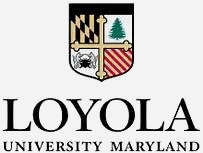
Loyola University of Maryland
Paid: Yes, payment is available as an affiliate instructor for those who are citizens or have relevant visa. Loyola University requires all instructors be paid, so only candidates who are capable of receiving payment as instructors can be considered.
Positions: Multiple
Minimum Degree Requirements: PhD or equivalent degree required.
Commitment Period: 1 semester (Fall semester runs 9/3/24‐12/9/24)
Topics: Biology
- Click to expand -
Loyola University Maryland
Department of Biology
4501 N. Charles St
Baltimore, MD, 21210
CTF Contact
Dr. Lisa Scheifele
Associate Professor of Biology, Loyola University Maryland
410.617.2316
[email protected]
Loyola Information Session Recorded Presentation
Multiple Adjunct Faculty Positions Available (Fall 2024):
Five Positions Available (Fall 2024) for BL151 Foundations of Biology I (1 credit lab course)
-
- Monday 9:00- 11:00 am
- Monday 4:00-6:00 pm
- Tuesday 5:00-7:00 pm
- Wednesday 4:00-6:00 pm
- Friday 1:00-3:00 pm
One Position Available (Fall 2024) for BL153 Foundations of Biology 2 (1 credit lab course)
-
- Friday 2:00-4:00 pm
Two Positions Available (Fall 2024) for BL155 Foundations of Biology 3 (2 credit lab course)
-
- Tuesday 1:40-5:30 pm
- Friday 1:00-4:50 pm
Degree Requirements: PhD or equivalent degree preferred
Preferred Skills and Experience: Scientific expertise that matches course content; strong interest in teaching undergraduates; willingness to respond to feedback and work collaboratively with multiple instructors
Commitment Length: 1 semester (Fall semester runs 9/3/24‐12/9/24)
Payment: Yes, payment is available as an affiliate instructor for those who are citizens or have a relevant visa.
Expected Weekly Commitment: Expect 4-5 hours per week for Foundations 1 and 2 labs (2 hours of course time, 1-2 hours of grading and preparation, 1 hour of office hours). Expect 6-7 hours per week for Foundations 3 labs (4 hours of course time, 1-2 hours of grading and preparation, 1 hour of office hours). Office hours can be scheduled at the instructor’s convenience, but typically occur immediately before or after class.
Fellowship Details/Expectations:
-
- BL151: This is an individually taught lab course that supports and enhances the material taught in lecture, BL150. Topics include cell structure, microscopy, enzyme kinetics, cell division, restriction digest and gel electrophoresis. Course syllabus, text, and PowerPoint slides will be provided, and we expect instructors to adhere to these materials with minimal changes.
- BL151: This is an individually taught lab course that supports and enhances the material taught in lecture, BL150. Topics include cell structure, microscopy, enzyme kinetics, cell division, restriction digest and gel electrophoresis. Course syllabus, text, and PowerPoint slides will be provided, and we expect instructors to adhere to these materials with minimal changes.
-
- BL153: This is an individually taught lab course that supports and enhances the material taught in lecture, BL152. This course is a continued introduction to laboratory work at the organismal level, in which students demonstrate proper dissection techniques, express and interpret data in graphs and tables, perform scientific calculations and statistics, design, conduct, and adapt experiments and protocols, and work in diverse teams. Course syllabus, text, and PowerPoint slides will be provided, and we expect instructors to adhere to these materials with minimal changes.
- BL153: This is an individually taught lab course that supports and enhances the material taught in lecture, BL152. This course is a continued introduction to laboratory work at the organismal level, in which students demonstrate proper dissection techniques, express and interpret data in graphs and tables, perform scientific calculations and statistics, design, conduct, and adapt experiments and protocols, and work in diverse teams. Course syllabus, text, and PowerPoint slides will be provided, and we expect instructors to adhere to these materials with minimal changes.
-
- BL155: This is an individually taught lab course that supports and enhances the material taught in lecture, BL154. This course is an introduction to ecology, evolution, and population biology including the relationships among organisms, responses to stress, the mechanisms of genetic change and maintenance of diversity, mechanisms of evolution and speciation, biogeography, energy flow through ecosystems and resource allocation, food webs and ecosystem services, and biogeochemical cycles. Course syllabus, text, and PowerPoint slides will be provided, and we expect instructors to adhere to these materials with minimal changes.
Evaluation: Ongoing in‐person feedback from course coordinator who coordinates and supports all instructors of the introductory lecture and lab courses. Formal written feedback at the end of semester if requested by the fellow. For fellows who wish to teach for more than one semester, continuation from the fall to spring is dependent on performance evaluations and student teaching evaluations which must be provided to the Department Chair prior to reappointment.
Parking and Transportation: Public transportation is available. Limited free parking is available on the street (except from 4‐6 PM). Satellite parking is available off‐campus for a minimal fee with a shuttle connecting the parking to main campus (www.loyola.edu/department/financial‐ services/parking/options#fas).
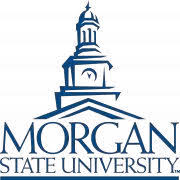
Morgan State University
Paid: Fall 2024 are unpaid
Positions: 4 for Fall 2024
Minimum Degree Requirements: M.S. Degree or Equivalent such as Ph.D. Candidacy Status
Commitment Period: Varies depending on the opportunity
Topics: Intro Biology for Majors, Principle of Animal Physiology, Anatomy and Physiology I, Molecular and Cellular Biology
- Click to expand -
Morgan State University
1700 E Cold Spring Ln
Baltimore, MD 21251
Contact
Cleo Hughes Darden, PhD
Chair and Professor, Department of Biology
443.885.3070
[email protected]
Morgan State University Information Session Presentation (PDF)
Fall 2024
BIOL110 Introductory Biology for Majors (1 fellow)
BIOL310 Molecular and Cellular Biology (1 fellow)
The Collaborative Teaching Fellow will co-teach an undergraduate biology course at Morgan State University. The fellow will have the opportunity to work closely with esteemed faculty members. The training plan consists of the following activities: shadowing class teaching for the first two weeks of the semester, designing teaching materials with the practice of backward design and active learning, lecturing 2 topics within the course, developing a teaching statement, designing and analyzing student feedback, and attending teaching workshops. The fellow can attend department meetings and student activities if one desires. The working schedule is relatively flexible. These positions do not have compensation. Previous CTFP fellows have been offered part-time teaching positions after the training.
Degree Requirements
MS Degree Required or Equivalent (Ph.D. Candidacy Status)
Payment
Unpaid
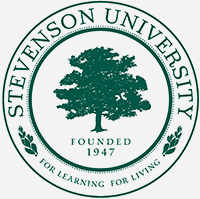
Stevenson University
Paid: Paid and unpaid, depending on position.
Positions: Multiple
Minimum Degree Requirements: Fellows must have at least a Master’s degree, or the equivalent of a Master’s degree (i.e. Ph.D. students who have passed their qualifying exams)
Commitment Period: 1 or 2 semesters
Topics: Multiple; see below for details
- Click to expand -
Stevenson University
Beverly K. Fine School of the Sciences
11200 Ted Herget Way
Owings Mills, MD, 21117
CTF Contact/Mentor
Rivka L. Glaser, Ph.D.
Director, Stevenson University Honors Program
Associate Professor of Biology
443.394.9644
[email protected]
Stevenson Information Session Recorded Presentation
Fellowship Details/Expectations:
Varies with each course and the experiences / needs of the CTF fellows.
Two to Four Positions Available Each Semester. For Fall 2024, the following positions are available:
- Mentored fellowships (Unpaid): Fellows with little teaching experience or who wish to expand their teaching portfolio will be mentored by Stevenson faculty member. Each fellowship is personalized to the fellow’s needs. Previous CTF fellows have designed labs, given guest lectures, created class assignments and rubrics, and led class discussions.
- For Fall 2024, Intro Bio lab, Intro Bio II lecture (organismal bio), and ecology. Additional opportunities may be available in other biology, chemistry, or nursing classes.
- Adjunct instructor (Paid): Fellows with extensive teaching experience, including being an instructor of record for a course can apply for an adjunct instructor position for an introductory course. All new adjunct instructors are mentored by experienced faculty.
- For Fall 2024, positions availabe in Intro Bio lecture and lab. Syllabus would be provided for you, as well as many other resources for the class (powerpoints, quizzes, class activities, etc.)
- Additional opportunities to be mentored by non-science faculty are possible as well. Please inquiry.
Degree Requirements:
Fellows must have a Master’s degree, or the equivalent of a Master’s degree (i.e. Ph.D. students who have passed their qualifying exams)
Preferred Skills and Experience
Subject matter expertise should match the course content of interest. A strong interest in teaching undergraduates; willingness to respond to feedback and work collaboratively with mentor.
Commitment Length
One or two semesters.
Expected Weekly Commitment
For mentored fellowships: varies per course; commitment will be worked out between mentor and fellow. Expect approximately 3-5 hours per week. For adjunct positions: the weekly commitment is 3 hours/week in class plus 3 hours/week office hours.
Evaluation
Ongoing in-person feedback, written evaluation at end of semester if requested by fellow.
Parking and Transportation
Ample parking available on campus. Stevenson shuttle from Owings Mills metro to campus is available as well.

